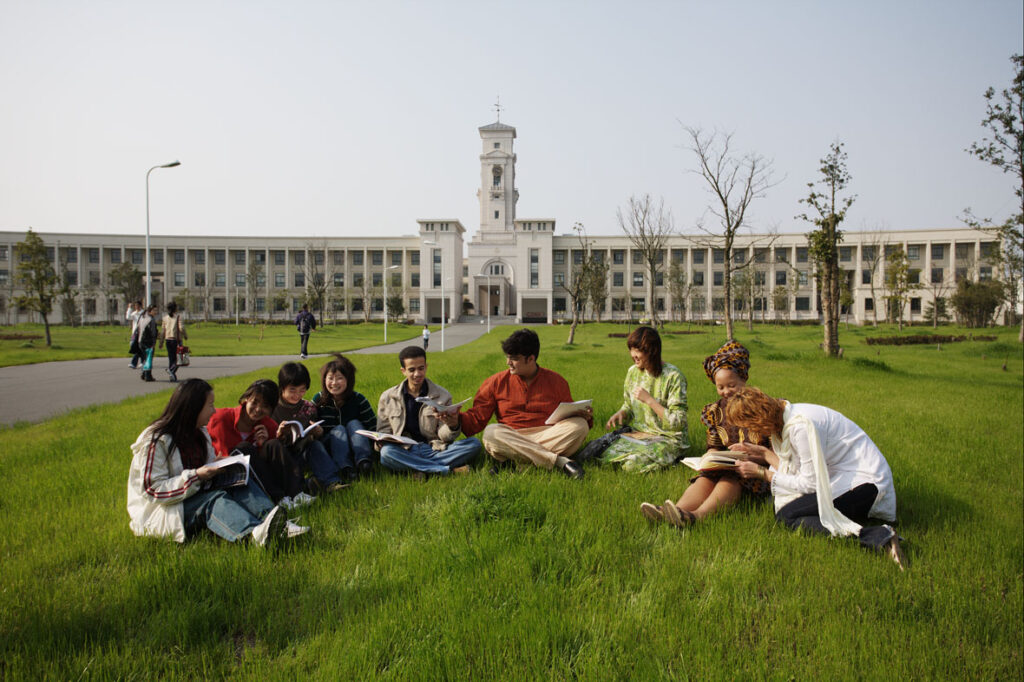Study in Netherlands From Pakistan
A Comprehensive Guide to Study in Netherlands from Pakistan with NorthPole Consultants
The Netherlands is becoming an increasingly popular destination for Pakistani students looking for higher education abroad. Known for its high-quality education system, diverse student population, and vibrant cultural landscapes, the Netherlands offers excellent and matchless opportunities for those planning to study abroad. Many Pakistani students choose this Schengen country for its world-class universities, innovative research opportunities, and globally recognized and highly employable degree programs for both Bachelor’s and Master’s level. Lets ‘discuss step by step why study in Netherlands from Pakistan is one of the top priority destinations of the Pakistani Students
Why Study in the Netherlands from Pakistan?
There are several substantial reasons why Pakistani students are drawn to the Netherlands. One major factor is the country’s reputation for its quality education and academic excellence. Dutch universities consistently rank high in international university rankings, with universities like the University of Amsterdam, Leiden University, and Delft University of Technology standing out for their research and teaching quality. Furthermore, most universities in the Netherlands offer courses in English, making it an attractive destination for students from Pakistan who may not be fluent in the Dutch language.
Pakistani students also find a welcoming and multicultural environment while living and studying in the Netherlands. With a strong international student community, it is easy to integrate into Dutch society, and the diverse campuses offer numerous opportunities for networking with peers from around the world.
Education System in the Netherlands
The education system in the Netherlands is highly structured and tailored to promote both theoretical and practical learning needs. Dutch universities offer two main types of education institutions: Public Research Universities and Universities of Applied Sciences. Pakistani students can choose between accordingly based on their academic and professional goals.
Research universities in the Netherlands focus on theoretical knowledge, critical thinking, and research skills. These institutions are ideal for Pakistani students who aspire to pursue fields such as engineering, technology, and the social sciences. In contrast, universities of applied sciences emphasize practical experience and are better suited for those aiming for immediate employment after their studies.
The quality of education is regulated by the Dutch Ministry of Education, ensuring that degrees obtained from these institutions are recognized globally. Degrees from Dutch universities open doors to international job markets, making the Netherlands an excellent choice for students from Pakistan looking to build a global career.
Most Represented Countries
- Germany
- Italy
- Romania
- China
- Belgium
- Pakistan
- India
COMMON STUDY LEVEL AND ADMISSION REQUIREMENTS IN NETHERLANDS

Visa Process for Pakistani Students
Once admitted to a university in the Netherlands, students need to apply for a student visa usually known as MVV (Provisional Residence Permit). The Dutch visa process for international students is relatively straightforward. Students from non-EU/EEA countries are required to seek help from their Higher Education Provider to initiate the MVV (Provisional Residence Permit) process.

Students who wish to study in the Netherlands from Pakistan must meet certain admission requirements, which usually depend on the university and the level of study for admission. For undergraduate programs, students typically need to have completed their higher secondary education (HSSC) or A-levels with at least 60 percent overall grades as well the IELTS Band result with overall 6 and not less than 5.5 in each module.
However for postgraduate programs admissions, 16 years of qualification or 4 Year Bachelor’s with 65 % to 70 % overall grades along with the required taught credit hours in the specific subjects for Postgraduate degree admissions. Unlike undergraduate degree programs admission, the IELTS test band requirements are slightly higher meaning 6.5 overall where not less than 6 in each module is required for a smooth and successful post-graduate admission. However, students are always advised to check the admission eligibility and country-specific requirements before applying their admission to study in the Netherlands from Pakistan.
Moreover, some specific natures of programs may require students to provide a comprehensive motivation letter, recommendation letters, or a portfolio (for creative courses). Entrance exams or interviews might also be part of the application process for certain specialized fields. Moreover, some public universities may ask for the GRE test results to study in the Netherlands.

Like many other European Countries, like Germany and Belgium Netherlands also requires financial guarantees from the students of non-EU/ EEA countries, particularly from Pakistani students. This financial guarantee varies from 12k Euros to 14k Euros. The required amount of financial guarantee is deposited to the University’s given Bank Account upon generation of the final receipts of the international student’s outstanding dues. When all these payments are done, the request for the provisional residence permit is initiated by the Education Provider on behalf of admitted international students.
To apply for an MVV, students must submit the following documents:
- A valid passport
- An unconditional admission /Letter of acceptance
- Proof of sufficient financial means to support their stay in the Netherlands (around €12,000 to €14,000 per year)
- Proof of health insurance
- Academic transcripts
- English language proficiency scores
The MVV (Provisional Residence Permit Application) process usually takes about 4-6 weeks, so it is advised to start this process as early as possible after receiving the unconditional admission letter.

Study in the Netherlands from Pakistan can be an expensive choice for international students. However, there are several scholarships and financial aid options available for international students. The most notable scholarship programs include:
- Holland Scholarship: This has been exclusively designed for non-EU/EEA students and provides a one-time grant of €5,000 for the first year of study. However, if students maintain their academic performance during the first year of their studies further scholarships are also awarded to the international students to help them acquire Dutch Education on reasonable and affordable cost.
- Orange Tulip Scholarship: Specifically designed for students from certain non-European countries, including Pakistan, this scholarship offers financial support based on academic merit.
- Erasmus Mundus Joint Master Degrees: This program provides scholarships for selected master’s programs and is available to students worldwide, including those from Pakistan and other non-EU/EEA countries.
Additionally, some universities offer their own merit-based scholarships keeping in view the previous educational achievements of the international students. Pakistani students are encouraged to explore these options early, as scholarships are often competitive.

While the cost of living in the Netherlands is relatively high compared to other European or Schengen countries, on the other hands it is still manageable for international students. On average, Pakistani students can expect to spend between €800 and €1,200 per month on living expenses, which include accommodation, food, transportation, and other personal necessary costs for day-to-day life matters.
Cities like Amsterdam and Rotterdam tend to be more expensive, while smaller towns such as Groningen and Maastricht offer more affordable living options. Many students choose to live in student housing or shared apartments to reduce costs. Additionally, part-time work is allowed for non-EU students, which can help cover living expenses.

International students from non-EU/EEA countries are allowed to look and work for part time jobs in the Netherlands along with their academics up to 16 hours a week. However, International students can work up to 40 hours in a week when they don’t have classes or they are on semester, Christmas, Easter or on local holidays. There are plenty of part-time opportunities for international students to work along with their studies in the different sectors in the Netherlands like grocery stores, warehouses, takeaways, restaurants, and carwashes.

The Netherlands is known for its open-minded and tolerant multicultural society, which makes it easy for international students, including those from Pakistan, to feel at home. The country has a strong focus on work-life balance and an excellent public transportation system, making it convenient to travel around and explore.
Pakistani students can find various cultural and religious communities in the Netherlands, including mosques, cultural centers, and organizations that cater to the needs of the Pakistani diaspora. This helps students feel connected to their roots while adjusting to their new surroundings.
Student life in the Netherlands is also filled with extracurricular activities. Dutch universities offer a wide range of clubs and societies, from sports to cultural activities. Pakistani students can join international student associations, participate in cultural exchange programs, or explore Dutch traditions such as King’s Day and Sinterklaas.

International students from non-EU/EEA countries are allowed to look and work for part time jobs in the Netherlands along with their academics up to 16 hours a week. However, International students can work up to 40 hours in a week when they don’t have classes or they are on semester, Christmas, Easter or on local holidays. There are plenty of part-time opportunities for international students to work along with their studies in the different sectors in the Netherlands like grocery stores, warehouses, takeaways, restaurants, and carwashes.

One of the key reasons why students from Pakistan choose the Netherlands is the excellent employment prospects after graduation. The Dutch government offers a “search year” visa/ orientation year which allows international graduates to stay in the country for up to one year after completing their studies to look for employment. This is a great opportunity for Pakistani students to gain work experience in Europe.
The Netherlands is home to many multinational companies, particularly in sectors such as engineering, finance, IT, and life sciences. Cities like Amsterdam, Rotterdam, and Eindhoven are hubs for international businesses, making them ideal locations for graduates seeking job opportunities.
Moreover, the Dutch work culture emphasizes innovation and collaboration, and employers are generally open to hiring international talent. Pakistani students with strong English and Dutch communication skills and along with relevant qualifications can find themselves in high demand in the job market.

The Netherlands is known for its open-minded and tolerant multicultural society, which makes it easy for international students, including those from Pakistan, to feel at home. The country has a strong focus on work-life balance and an excellent public transportation system, making it convenient to travel around and explore.
Pakistani students can find various cultural and religious communities in the Netherlands, including mosques, cultural centers, and organizations that cater to the needs of the Pakistani diaspora. This helps students feel connected to their roots while adjusting to their new surroundings.
Student life in the Netherlands is also filled with extracurricular activities. Dutch universities offer a wide range of clubs and societies, from sports to cultural activities. Pakistani students can join international student associations, participate in cultural exchange programs, or explore Dutch traditions such as King’s Day and Sinterklaas.
